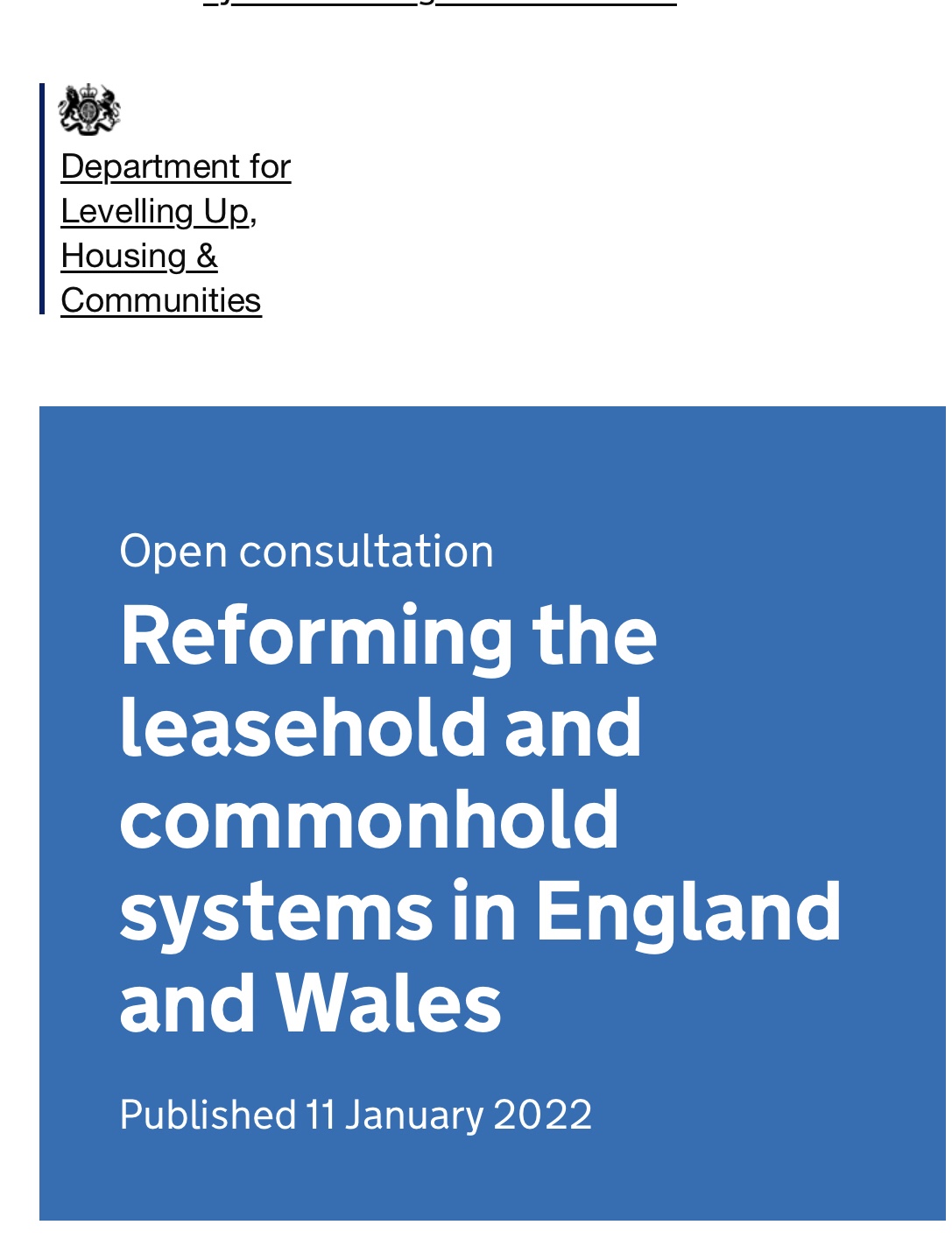A change to the threshold for non-residential premises in enfranchisement and the prospect of mandatory leasebacks – Both in consultation as of 11th January 2022.

Following on from the Law Commission’s work on this and hot on the heels of last January’s announcement that MHCLG (now DLUHC) was looking to consult on the proposed reforms to make it ‘cheaper and easier’ to enfranchise we now have a new consultation – closing 22nd February 2022.
The consultation seeks views on the following proposals:
• The non-residential limit for collective enfranchisement;
• The non-residential limit for right to manage claims;
• A non-residential limit for individual freehold acquisitions;
• The introduction of mandatory leasebacks as part of collective freehold acquisitions;
• Commonhold voting rights in shared ownership properties; and
• The provision of information during the sale of a commonhold property.
So what do we think about all of these ?
There is quite a lot here, so I am going to focus first on the enfranchisement options, as after all this is very much ‘Leasehold Reform News.’ The big item is really the 25% rule as it might affect collectives.
The 25% threshold was discussed in the Law Commission’s work at some length – and for those whose buildings don’t qualify at the moment because more than 25% is used for ‘non-residential’ purposes this would be very good news – but, I am sure that there are plenty of buildings out there that have been specifically built with this limit in mind.
Developers, investors and pension funds may be less keen on losing the ‘jewel in the crown’ of their retail investment portfolio to an enfranchisement sub-committee – or indeed a rival investor who uses the legislation as a stalking horse to make this happen.
Don’t forget also that if you buy the freehold and there are no long leases in place of the retail units you would have to fund the purchase of these somehow. If you live in a flat over a ‘Bluewater’ like development this might cause something of a funding gap.
Unless, of course, the freeholder takes a ‘leaseback’ of these areas – meaning that you don’t have to fund these areas as the freeholder retains them on a long lease and you become their landlord. Well, at the moment that will only happen if the freeholder wants it to and many will say ‘no’ as they know that it will make the enfranchisement fail.
Mandatory leasebacks – and how this would fit with changing the 25% rule
But wait, what’s this? The consultation is proposing mandatory leasebacks – something of a ‘life hack’ for collectives ! If the freeholder had to take a leaseback then this will certainly make it ‘cheaper and easier’ as the cost (and value) in these areas stays with the freeholder.
Well, of course, if this did happen many many more blocks would be able to enfranchise and the debate would shift to the management issues that might arise in the after scenario.
So, what does all this this mean?
Well, if the law is reformed in this way, there will be a lot more enfranchisements in situations where this has not been possible before. Some of these will be quite complex mixed-use developments. If the requirement for mandatory leasebacks were introduced at the same time, then this would very much clear the pathway for a lot more collectively owned buildings, and, dare I say it, enfranchisement professionals will be kept very busy indeed.
A slightly belated, Happy New Year!
Mark Chick
12.1.2022